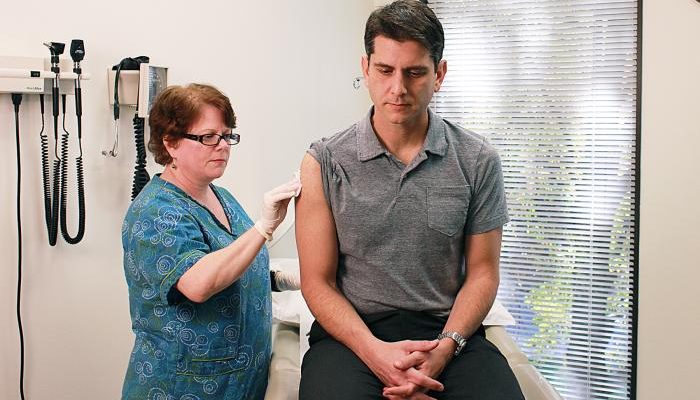Part of the Plan is the Office of Emergency Management’s monthly video series where we open our public safety plans and partnerships. Something we value at OEM is informing and including the public as to your roles in our plans. You are the Public in Public Safety. This month, we get insight into flu season from Steve Alles, M.D., with the Philadelphia Department of Public Health. Dr. Alles talks about how easily the influenza virus can spread, how dangerous it can be, and how you can help lessen the risk of getting sick.
October 15, 2018
The influenza virus can mean much more than the sniffling, sneezing, aching head, and fever symptoms that may first come to mind when describing the flu.
Influenza can be deadly.
Last flu season, an estimated 80,000 Americans died of flu and complications from the virus according to the US Centers For Disease Control and Prevention (CDC).
Dr. Steve Alles, Director of the Philadelphia Department of Public Health’s Division of Disease Control, say 51 Philadelphia residents died from the influenza virus last season.
Influenza virus also sends hundreds of thousands of people in the United States into the waiting areas of doctor’s offices and emergency rooms.
There are steps you can take, according to Dr. Alles, that can lessen your risk of getting the flu. The best way, says Alles, is by getting the seasonal flu vaccine every year. This enables your body to have it’s own protective immunity against the virus.
Other preventative measures you can take include good hygiene, like washing your hands and face.
Another action is to practice social distancing, also known as staying away from others. Influenza virus is primarily a respiratory illness and is transmitted in droplets by coughing or sneezing, including onto people who are within three to six feet of you or from touching surfaces containing the virus.
Spreading the flu is costly, not only to health, but to the workplace. Statistics released by the CDC say the influenza virus causes American workers to miss 17 million workdays yearly due to flu at an estimated $7 billion per year in sick days and lost productivity.
When you’re sick with the flu, staying home from work, school, or social functions can help to not spread the influenza virus,
For more on the flu and what you can do, visit our partners at the Philadelphia Department of Public Health.
An essential way to be prepared is to stay informed. Get emergency alerts from OEM’s ReadyPhiladelphia program sent to your phone or email to keep you informed prior to and during an emergency. Follow us on Twitter. Like us on Facebook.




